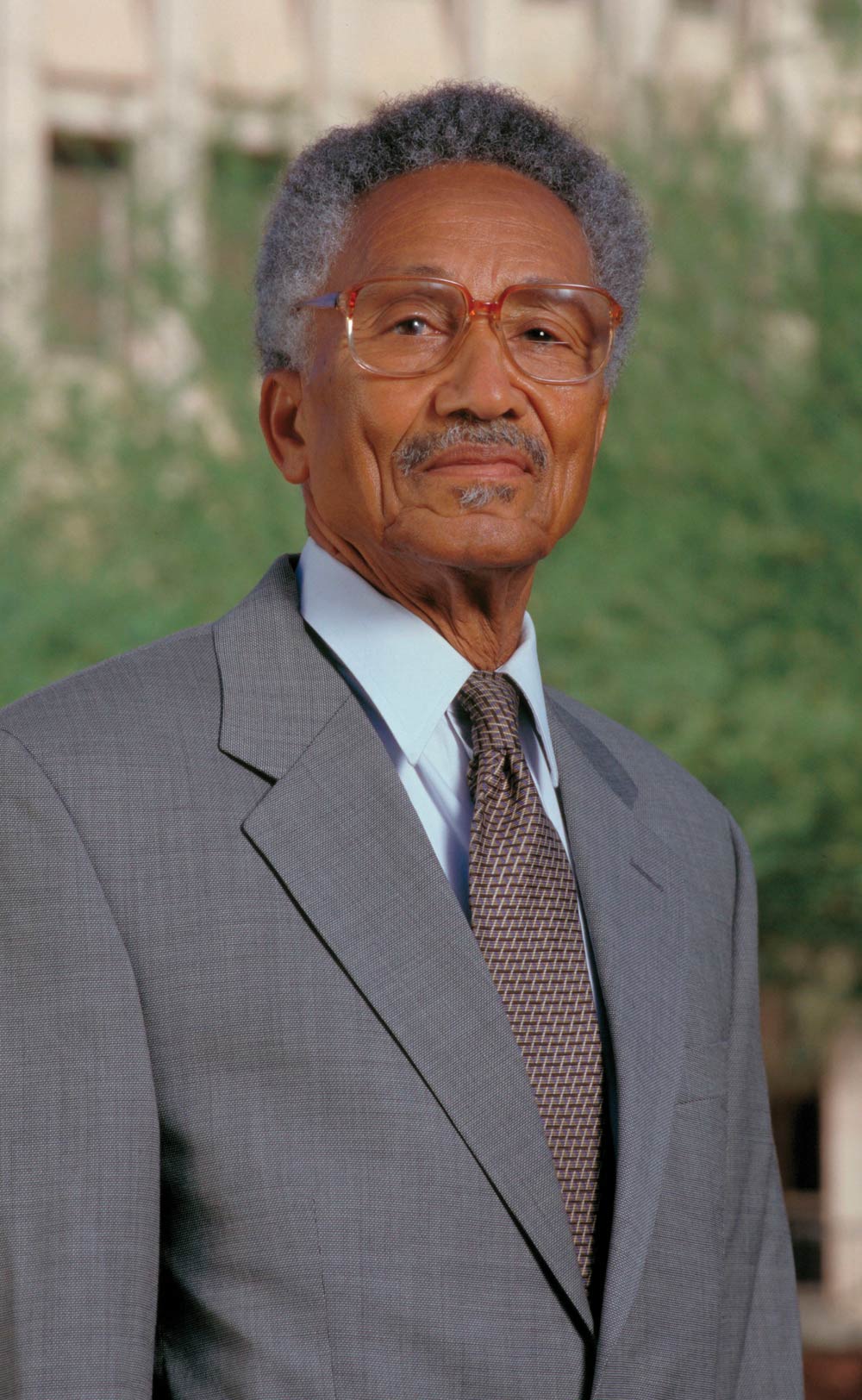
An infant when the family moved to Gila Bend, Arizona, to work in the agricultural fields, Goode remembered picking cotton as a child. He graduated from eighth grade there but the local high school did not allow Black students, so the family moved to Prescott, where the children were allowed to attend schools.
Goode recalled his mother pushing education, even though she attended school only through sixth grade. And although his father attended only through eighth grade, he also was a strong proponent of his children being able to go to high school and achieve more.
During his junior year, Goode fell ill. “I was 16 at the time and, can you imagine, I was 5 foot, 1 inch, and weighed 75 pounds,” he said. The physician thought Goode might have a heart condition and predicted he might live for only one year, so the family decided to send the teenager to Phoenix for his health.
While attending Carver High School, a segregated high school for Black students, Goode worked on the school yearbook and was introduced to Black history. He graduated from Carver in 1945 and attended Phoenix College for two years, then enrolled at Arizona State University and earned his business degree. (He later earned a master’s degree in education at ASU.)
During those years, Goode also ran a tax accounting business, Calvin Goode & Associates. “We started on the kitchen table and people came, ‘Mr. Goode, help me with this,’ ” he explained. “Our price was very low and we did it to help people.”
In 1960, Goode married his wife, Georgia, who worked as a schoolteacher. The couple raised three sons and were involved in a wide variety of community affairs. Goode served on the local school board and chaired the Phoenix LEAP Commission to improve education and job training opportunities.
In 1971, Goode was persuaded to run for a seat on the Phoenix City Council. Some people thought he was too timid to run for office because he was so softspoken, he said: “They didn’t think I could win. But with the charter government committee’s help and my contacts made in the community, we put together a campaign.” He was elected and served 11 terms — a record 22 years.
Goode was often called the “conscience of the council” because he used his voice to raise questions and pushed for improvements in neglected parts of the community. To commemorate his years of service to the city, the Calvin C. Goode Phoenix Municipal Building was named in his honor. After he retired, he remained active with the Booker T. Washington Child Development Center, the Eastlake Neighborhood Association, and the George Washington Carver Museum and Cultural Center, which opened on the site of the former Carver High School he attended as a student.
